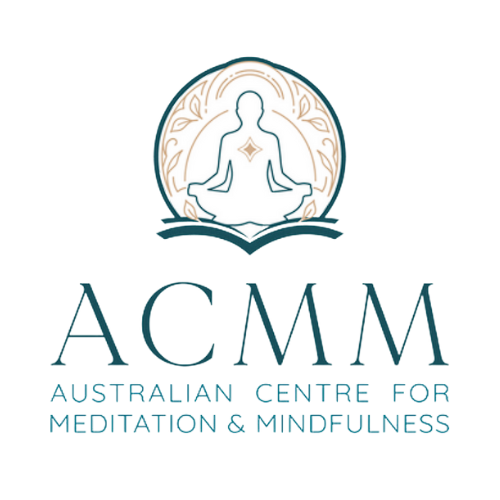“Dare to connect with your heart. You will be lifting not only yourself and those you love and care about, but also the world in which you live.” – Doc Childre, Heart Math founder
I discovered the wonderful space of the Heart Math Institute. For more than 25 years the Institute has been researching the heart/brain connection. Learning how the heart influences our perceptions, emotions intuition and health. This is not new to those of us who have learned to meditate and embrace meditation in our daily lives.
Becoming heart-coherent and practicing simple techniques can change everything in our lives. Helping us access much more of our intuitive intelligence. Is the heart’s intelligence a portal to our higher capacities as human beings?
The Heart Math Institute, has conducted years of research. It has established a relationship between increased heart coherence and accessing our innate intuition. The Institute discovered that the heart sends more signals to the brain than the brain sends to the heart! These signals have significant effect on our brains function including emotional processing, As well as out higher cognitive capacity perceptions skills, memory and problem solving. This has wonderful implications for meditation and wellbeing.
What is Heart Coherence?
Heart coherence is when we have an ordered and stable pattern of the heart’s input which is like a smooth harmonious wave. This reinforces positive feelings and emotional stability.
When we are under lots of stress, the heart’s pattern becomes erratic and disordered. This then limits our ability to think clearly, remember, learn, reason and make effective decisions. I am sure we have all been here under stress, when accessing our minds is like driving through a thick fog. However, when we experience positive emotions like love, appreciation, kindness, gratitude, joy and compassion; our hearts rhythm/ pattern becomes highly ordered and we are open into a vast field of potential. The capacity to be able to shift into a coherent state, quietening the mind and the emotional stimulus and paying attention to the shifts in our feelings and thoughts is like mooring into a safe harbor, our grounding in our meditation stages.
Research shows that when we activate this state of heart coherence (through meditation), our physiological systems operate efficiently and we have greater emotional stability. Ultimately our brain and body work efficiently and then we function better.
You might ask is this the same as relaxation? Heart Math Institute says “no”; that although it encompasses a key element of the Relaxation Response, it is different. In relaxation, the heart rate lowers significantly. The heart coherence is marked by a smooth harmonious wave in the hearts rhythm, but it is not lowered. (See diagram below from the Heart Math Institute)
“When our vibrations are up we respond to stressful situations with soundness, resilience and clearer discernment. We are less vulnerable to frustration, impatience, anger, anxiety, and we feel more self-secure and less critical of others and of ourselves. We are drawn to notice nature, flowers and trees that we usually sleep-walk past, as our preoccupations rob us of this gift of conscious connection.” Doc Childre Heart Math founder
Simple techniques to try
Heart Math meditation focuses on implementing a heartfelt positive emotional state. This is the key element to its effectiveness. Positive emotions excite our system. Think of a gorgeous sunset, a puppy, a new born baby, a place in nature. When we tune into this, we move into coherence. We can also feel this in practices of the Heart in our meditation practice.
These are all rich and deeply supportive energies of love that assist in creating this coherence. You might recall a time when the beauty of a tree stopped you, a majestic rock formation or even something man made caught your attention. You just had to gaze at it. That is appreciation, and it counts. Have you ever gently scooped up an insect to save it from being crushed on a pathway? That is compassion, and it counts!
Think of the countless times when you’ve told people how truly grateful you were for a kindness, they showed you. Or the assistance they gave you. All of that is gratitude, and it counts on the coherence meter.
It’s becoming clearer to many of us, that working together with kindness, compassion and acceptance are the missing pieces for resetting humanity’s fast and furious trajectory into separation, hate and fear. By accessing these states of coherence, we can ultimately deepen our intuition and creativity, our cognitive abilities and even hormonal balance. Meditation practices allow us to access this state by cultivating these qualities.
Heart Math Short Meditation Practices
Meditation Exercise 1: Pause and calm
When feeling low, just sit quietly and visualize radiating love, compassion and stillness into your mental and emotional nature.
Pausing to feel our heart’s suggestions can deter many energy-draining standoffs with others, often with people we care about the most. We can proactively avoid these repeating uncomfortable situations and regrets. We often do this naturally in our meditation practice.
Practicing pause and calm is increasing in popularity as respected self-care practices. With the flow on effects of mindfulness, especially in these sped-up times of change, uncertainty and pressurized choices.
Self-care is often allowing ourselves to have a low moment without compounding it with self-criticism.
When our light is dim, it helps to give ourselves the feeling of compassionate heart warmth that we would give a child or a pet that is scared, unwell or feeling sad.
Meditation Exercise 2: Appreciation Break
Take two or three appreciation breaks each day, ideally in early morning, at work, while returning home or before bed. It takes as little as two minutes to achieve mental, emotional and physical balance. Make a list of things you appreciate such as people, places, activities and pets and choose one or two each morning to hold in your heart during the day. Choose one to hold in your heart throughout the night while you rest.
Keep your Appreciation List close by all day, perhaps in a pocket or purse, at your desk or computer. In stressful moments, choose something from your list that can quickly evoke a feeling of appreciation. It can transform a long and stressful day into one that flows — amazingly in 30 seconds or less.
Exercise 3: Heart Coherence Practice (audio)
This short 6 min practice on the coherent heart is my version of the Heart Math practice:
https://youtu.be/z9lShyvswQ4
Enjoy meditating and practicing these simple but effective ways of developing heart coherence
Kate Gee, ACMM Coach







